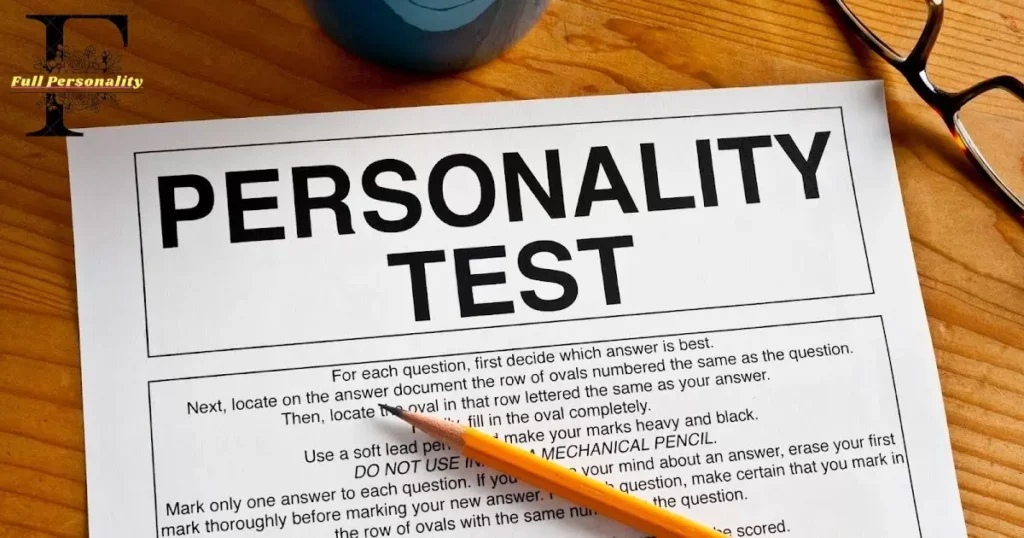Self-reported means information given directly by the individual. It comes from oneself without outside checks. People provide self-reported data on surveys and forms. They share details about views, behaviors and experiences. What is self-reported relies on honest answers from the reporting person.
Have you ever wondered why you fill out questionnaires to determine your personality type? Personality tests rely on self-reporting, they ask you directly about yourself without verification. The answers come straight from your own thoughts and perceptions. But can we always be honest with ourselves? Let’s explore why personality assessments fall into the self-reported category.
Personality tests are self-reported because they ask individuals to provide information about their own traits, behaviors, and tendencies. There is no objective way to measure personality. Tests ask questions that you answer based on your own perspectives and self-views. Your responses reveal how you see yourself rather than how others see you.
High Potential for Self-Serving Unconscious Bias
We all have unconscious biases that can skew our perspectives. One strong type is self-serving bias, where we view ourselves in an overly positive light. Our innate desire to maintain a positive self-image is understandable but can mislead our judgment. This bias has high potential to influence self-reported data like personality tests and surveys.
You may want to Read: Jordan Peterson Personality Test
Because self-serving bias operates below our conscious awareness, we may not realize its effects. We unconsciously remember accomplishments more than failures to preserve ego. We also tend to attribute victories to our abilities but blame losses on outside factors. This protects ourselves from admitting flaws but compromises honest self-analysis needed for accurate self-reports.
High Potential for Impression Management
When completing self-reported personality tests, there is a high potential for impression management to influence responses. Impression management refers to the tendency for people to present themselves in a favorable light. We often aim to control the image and perception others have of us. On personality tests, we may subconsciously slant answers to portray traits we believe are socially desirable.
The desire to look good can motivate us to omit less flattering details and emphasize positive qualities. But this distorts the validity of results meant to assess one’s actual personality. We may not openly admit to weaknesses even to ourselves during self-evaluation.
The unconscious urge to curry favor creates impression management bias with a high ability to skew the honesty of self-reported metrics aimed at real self-knowledge. Accurate results require counteracting these ingrained social strategies.
Outright False Responses
There is a possibility for outright false responses on personality tests that are self-reported. Without oversight, people may be tempted to answer questions dishonestly for various reasons like presenting a favorable image. Deliberately lying undermines the accuracy and validity of results meant for self-analysis. It prevents truly understanding one’s personality.
While biases are unavoidable, outright fabrication is within a person’s control. Some want to appear a certain way to others or achieve a specific outcome from the assessment. But honesty is needed for useful insights from reflection. Professionals recognize the value is in facing truths, not convenient falsehoods.
Self-awareness requires candid responses, even about less desirable traits. Distorted data helps no one, especially the individual’s long-term growth. Straightforward answers best serve the purpose of personality tests.
What Is The Alternative to Self-Reported Hiring Assessments?

Many companies use self-reported personality tests and skill assessments for hiring. However, there are limits to accepting only the candidate’s own views without verification. An alternative is using comprehensive assessments that go beyond simple self-reports.
Instead of quick online questionnaires, in-depth assessment tools observe applicants completing real tasks. Work samples, simulations, knowledge tests, references and structured interviews provide objective, well-rounded data on competence and character. Evaluators can identify strengths as well as weaknesses that are missed by a superficial self-assessment.
What are Self-Report Personality Tests?
Self-report personality tests are questionnaires that ask individuals to provide information about their own personality traits, tendencies, and behaviors. The questions are answered directly by the person taking the test based on their own self-perception. Common self-report tests include the Big Five personality test and Myers-Briggs Type Indicator.
These tests utilize self-reported data because there is no truly objective way to assess someone’s personality. They rely on individuals’ introspective analysis to truthfully describe who they are. The responses reveal the test-taker’s own view of their personality rather than how others might view them. While prone to certain biases, self-report tests remain widely used tools for providing insight into one’s strengths, preferences, and areas for improvement.
Problems with a Self-Report Personality Test
Self-report personality tests rely solely on individuals accurately portraying themselves, but this poses some challenges. It can be difficult to be completely introspective and honest about one’s personality traits. Unconscious biases tend to skew self-perception in a positive light. People may also respond in socially desirable ways to create a favorable impression.
Additionally, how test-takers perceive and label their own behaviors may differ from reality. Memory is fallible, and we are not always the best judges of ourselves. Statements like “I am an organized person” are subjective without objective verification. Environmental and emotional factors on the day of testing could influence responses. These issues indicate self-reports may not capture one’s full personality in an unbiased way.
Why Should Self-Reported Personality Measures Be a Concern in Hiring?

Personality tests that rely solely on self-reported data from job applicants pose some risks for companies during hiring. Without verification, responses can be skewed by unconscious biases like an overly positive self-view or impression management. This compromises the validity of results meant to identify the best candidates. Distorted profiles limit the ability to make fully informed decisions.
Additionally, candidates may feel pressure to give socially desirable answers that don’t accurately reflect their true personalities. This could result in hiring the wrong person for the job. Relying completely on self-assessments, without things like work samples, references and interviews, leaves room for important information to be missed. It’s a concern as flawed insights from self-reported measures may lead to poor hiring matches in the end.
Alternative to Self-Reported Hiring Assessments?
While self-reported personality tests and skills assessments are convenient for initial screening, they have limitations that call for alternatives. Relying solely on applicants’ self-perceptions leaves room for bias and dishonesty to influence results.
A better option is using comprehensive assessments that provide well-rounded, objective data on qualifications and fit. Tools like work samples, simulations, cognitive exams, reference checks and structured interviews allow direct observation of candidates completing real tasks. This mitigates risks of distortion from self-reports.
While requiring more time, multi-faceted evaluations create valid profiles that empower fully informed hiring choices. The alternative approach reduces uncertainty from hard-to-verify self-reported claims. Companies benefit from mitigating hiring regret down the road.
Self-Report Tests Strengths and Weaknesses
Self-report tests have some strengths they are easy and quick to administer. This makes them a convenient first-step screening tool. They can also provide initial insight into broad personality attributes. However, reliance on self-perceptions alone means the results are subjective.
The weaknesses of self-report tests are that they are prone to biases like an overly positive self-view that skews responses. Social desirability bias may also influence answers to create a favorable impression. Memory is imperfect, so how recent events are recalled can vary from reality.
Self-Report Personality Test Examples

| Test Name | Description |
|---|---|
| Myers-Briggs Type Indicator | Assesses personality based on preferences in perception and judgment. |
| Big Five Inventory (BFI) | Measures personality traits: openness, conscientiousness, extraversion, agreeableness, and neuroticism. |
| NEO Personality Inventory (NEO-PI) | Evaluates personality traits based on the Big Five model. |
| Hogan Personality Inventory (HPI) | Assesses personality in the context of careers and workplace behavior. |
| California Psychological Inventory (CPI) | Measures personality traits, attitudes, and behaviors in various contexts. |
| Minnesota Multiphasic Personality Inventory (MMPI) | Focuses on identifying psychological disorders and personality traits. |
| 16 Personality Factors (16PF) | Examines personality traits based on 16 factors derived from factor analysis. |
| DiSC Assessment | Assesses behavior tendencies based on dominance, influence, steadiness, and conscientiousness. |
Two widely used self-report personality tests are the Big Five personality traits assessment and the Myers-Briggs Type Indicator (MBTI). The Big Five examines an individual across five dimensions: openness, conscientiousness, extraversion, agreeableness, and neuroticism. Participants indicate the degree to which each trait applies.
The MBTI is a forced-choice questionnaire that places people into one of sixteen personality types based on their preferences on four dichotomies: extraversion/introversion, sensing/intuition, thinking/feeling, judging/perceiving.
Other common self-report tests include the NEO-PI-R, which provides more facet-level evaluation of the Big Five traits, and the DISC assessment, which examines behavioral styles like dominance, influence, steadiness and compliance.
Both employees and job applicants may complete self-report tests to gain insight into likely strengths and weaknesses or fit for particular roles. The results can be used for self-awareness, professional development, or hiring decisions.
How Self-Report Inventories Are Used in Psychology?
Self-report inventories are commonly used assessment tools in psychological research and practice. They allow individuals to privately provide information about themselves in areas like personality traits, thoughts, feelings, symptoms and behaviors. Psychologists use these self-reported data to better understand people, make diagnoses and inform treatment plans.
Self-report measures provide subjective information that can be valuable when objectively measuring certain internal states is not possible. They offer quick insights to help identify strengths and weaknesses, gauge change over time or match treatments to client needs.
However, biases must be considered as responses rely solely on one’s self-perceptions. While useful as an initial screening, findings usually require supporting evidence before being relied upon fully.
The 16 Personality Factor Questionnaire
The 16 Personality Factor Questionnaire (16PF) is a self-report assessment used to measure 16 primary personality traits. It was developed by Raymond Cattell and aims to provide comprehensive coverage of normal adult personality.
The 16 factors measured include traits like warmth, reasoning, emotion, dominance, liveliness, rule-consciousness, social boldness, sensitivity, vigilance, abstractedness, privateness, apprehension, openness to change, self-reliance, perfectionism, and tension.
The questionnaire consists of 185 multiple choice questions that participants respond to online or on paper. It takes 30-40 minutes to complete. The results are plotted on a profile to illustrate both strengths and weaknesses across the 16 personality factors.
The 16PF provides valuable insights for areas like career counseling, team building, and resolving conflicts. It’s commonly used in organizational and clinical psychology due to its thorough traits coverage.
California Personality Inventory

The California Psychological Inventory (CPI) is a self-report personality test used clinically and in organizational settings. It aims to assess personality and social characteristics that are relevant to predicting behavior. The test measures 20 different scales including dominance, capacity for status, sociability, social presence, self-acceptance, independence, empathy, and responsibility.
The CPI consists of 480 questions that are answered either true or false. It generally takes 60-90 minutes to complete. The questions cover a variety of behaviors and perspectives to develop a multifaceted personality profile for each individual. Their scores on the 20 scales are used to identify strengths and growth areas.
Professionals can utilize the CPI results for career guidance, leadership development, and determining suitability for certain roles or occupations. A key benefit is the test’s emphasis on measures correlated with real-world success.
FAQS
What is an example of a self-report test in psychology?
The Big Five personality test and Myers-Briggs Type Indicator (MBTI) are common examples of self-report personality tests used in psychology.
What are self-report techniques of personality assessment?
Where individuals provide information about themselves by endorsing various items or statements. Areas most often assessed include traits, behaviors, thoughts, feelings, and attitudes.
Which type of personality test is most common self-report?
Standardized questionnaires where individuals rate the degree to which descriptions of attributes, behaviors, or attitudes apply to them are the most common type of self-report personality test.
What is an example of a self-report method?
A widely used self-report method in psychology research and clinical practice is the Self-Monitoring Scale, where individuals indicate how well sets of statements describe themselves using true/false responses.
Conclusion
personality tests rely on self-report data because there is currently no wholly objective way to measure someone’s personality traits, thoughts, and behaviors. We can only gain insight into someone’s personality through what they themselves are willing and able to reveal based on introspection.
While self-reports have limitations, they provide valuable subjective information to help understand an individual when used appropriately. The alternative to self-report assessment would be external observation and ratings from others. However, gaining a comprehensive profile this way would be difficult given that observers can only see limited facets of a person’s total personality in different environments and situations.
Self-reported data, while imperfect, offers efficient insight when administered properly and with an understanding of potential response biases. Overall, personality tests continue to be self-reported due to practical necessity, though they must be interpreted cautiously.

